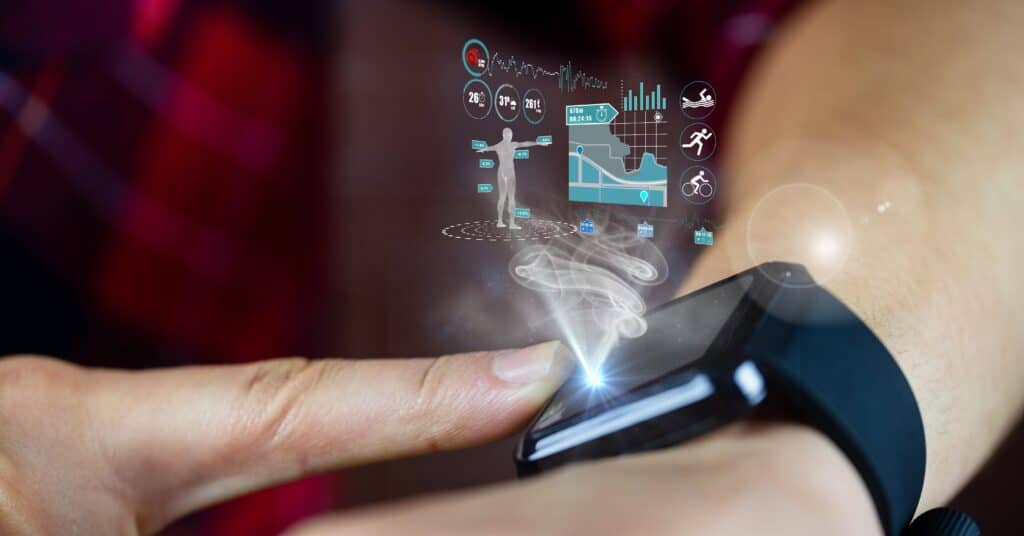Poems of Inner Strength
Spoken by People Living with Mild Cognitive Impairment and their Care Partners
Compiled by Brianna Morgan, MSN, CRNP

An Alzheimer's Disease Research Center
Compiled by Brianna Morgan, MSN, CRNP

By Cait Kearney
Experts debated positron emission tomography (PET) as a suitable surrogate endpoint for clinically meaningful outcomes and accelerated approval of Alzheimer’s drugs at an event held by the Internal Ethics Committee of the Alzheimer’s Clinical Trials Consortium (ACTC).
By Cait Kearney and Matt Smith
You’ve heard of Alzheimer’s disease, but what about LATE?
Over 30% of autopsied brains of people older than 80 show the presence of LATE, and 55% of people living with Alzheimer’s disease also have LATE.
“LATE is a unique and highly prevalent brain disease,” said Michael Tran Duong, PhD, University of Pennsylvania researcher and medical student.

Viginia Man-Yee Lee
By Meghan McCarthy
Virginia Man-Yee Lee, PhD, MSc, MBA, is one of the world’s most recognized and decorated researchers.
As director of the Center for Neurodegenerative Disease Research (CNDR) at the University of Pennsylvania, Dr. Lee studies the role of different proteins in various neurodegenerative disorders of aging, including Alzheimer’s disease. And for each of the more than 1,000 research publications which she has authored, she has also been cited in nearly 200,000 articles by others.
In recognition of that work, Research.com ranked her among the world’s top 100 scientists and the No. 2 female scientist. She has been awarded dozens of academic honors, notably the Breakthrough Prize in Life Sciences and its associated $3 million grant from a selection committee including Facebook’s Mark Zuckerberg and Google’s Sergey Brin.
Yet, throughout her life, Dr. Lee has had to prove her value.
To her mother.
To her employers.
To the entire scientific community.
She earned the Breakthrough Prize in 2020, but she says her true breakthrough came when she began believing in herself.

The Penn Memory Center is offering a variety of free programs for people living with cognitive impairment, caregivers, and their loved ones. Registration for the following programs is open:
Mindfulness and Meditation
Thursdays, 1:00 – 2:00 p.m., starting Jan. 19, virtual
Explore short meditation and mindfulness exercises that help reduce stress and ground you in the present moment.
RSVP for Mindfulness and Meditation
Cognitive Comedy
Tuesdays, 1:30 – 3:00 p.m., starting Jan. 24, virtual
Cognitive Comedy is an improv comedy workshop for people with cognitive impairment and their loved ones.

By Meghan McCarthy
A team of University of Pennsylvania researchers found that Black Americans are aging faster than white Americans, and inequities in socioeconomic resources is the main cause.
Scientists measure age with more data than just a birthdate. Biological age accounts for the various experiences in life that may slow or quicken the way your body ages.
“There are some people who are 80, super healthy, and live for many years. Then, there are 65-year-olds that already have many health problems,” said Isabel Yannatos, PhD candidate. “Biological age reflects the differences in how people develop health problems as they age.”

On January 6, the Food and Drug Adminstration (FDA) approved the Alzheimer’s drug lecanemab via its Accelerated Approval pathway.
The Accelerated Approval pathway allows for faster approval of drugs that are used to treat serious conditions and diseases while maintaining safety standards. Lecanemab, branded as “Leqembi,” was found to slow cognitive decline in people living with early-stage Alzheimer’s disease.

By Meghan McCarthy
Smartwatches can quickly tell users how many steps they’ve taken, what’s next on their calendar, or even how well they’re sleeping. But could they be used to measure empathy?
If so, the data could be an innovative tool in the understudied form of dementia called bv FTD, or behavioral variant frontotemporal dementia, said Penn Memory Center Clark Scholar Emma Rhodes, PhD.
Persons living with bv FTD often lose compassion for the people to whom they are closest, such as their spouses or children. Many struggle to notice social cues and as a result tend to respond inappropriately or not at all to emotional situations.
“Empathy requires being able to notice when someone is upset and identify when it’s appropriate to show compassion,” said Dr. Rhodes. “Because this requires many brain regions, it’s hard to scientifically pin down the mechanisms behind this.”

Emily Largent, Photo credit: UPenn Communications and Eric Sucar
When Emily Largent worked as an ICU nurse at UCLA, she didn’t shy away from the difficult cases. It wasn’t necessarily the medical procedures themselves that were challenging; caring for patients after organ transplants or managing a patient on life support were part of the job description. What really drew Largent to a case was the tough decisions that were involved. Should this patient really be a candidate for an organ transplant? What do we do when a patient’s family disagrees about ending life support?
As Largent worked on these cases, she saw the same questions come up again and again—and she had to solve them, again and again. “And it struck me,” she says, “that these might be instances where we need a systemic change, so that we weren’t repeatedly needing to come up with one-off solutions.”
That realization drove Largent to enter a bioethics fellowship at the National Institutes of Health (NIH) with Ezekiel Emmanuel, now a Penn Integrates Knowledge University Professor and the vice provost for global initiatives. She went on to obtain her J.D. and Ph.D. in health policy and is now an assistant professor of medical ethics and health policy at the University of Pennsylvania’s Perelman School of Medicine. While she no longer works in the ICU, she’s built a career dissecting the ethical issues around one of the leading causes of death in the United States: Alzheimer’s disease.
Alzheimer’s is “a huge public health problem,” says Largent. About 1 in 9 people older than 65 have Alzheimer’s dementia, and new diagnoses of the neurodegenerative disease are projected to double by 2050. The growing threat of Alzheimer’s has stoked the search for a cure or disease-modifying treatment.
By Meghan McCarthy
Beth Segaloff, LCSW, is no stranger to grief.
Years ago, Beth found her soulmate, Ben Sklaver, at the beach community where both of their families lived. Although their families had been connected for years, the two didn’t become a couple until spending July 4th together in 2008.

Ben and Beth
“I was blessed enough to have the magical moment that all people hope for,” said Beth. “I met Ben, and it was like we’d been waiting for each other our entire lives.”